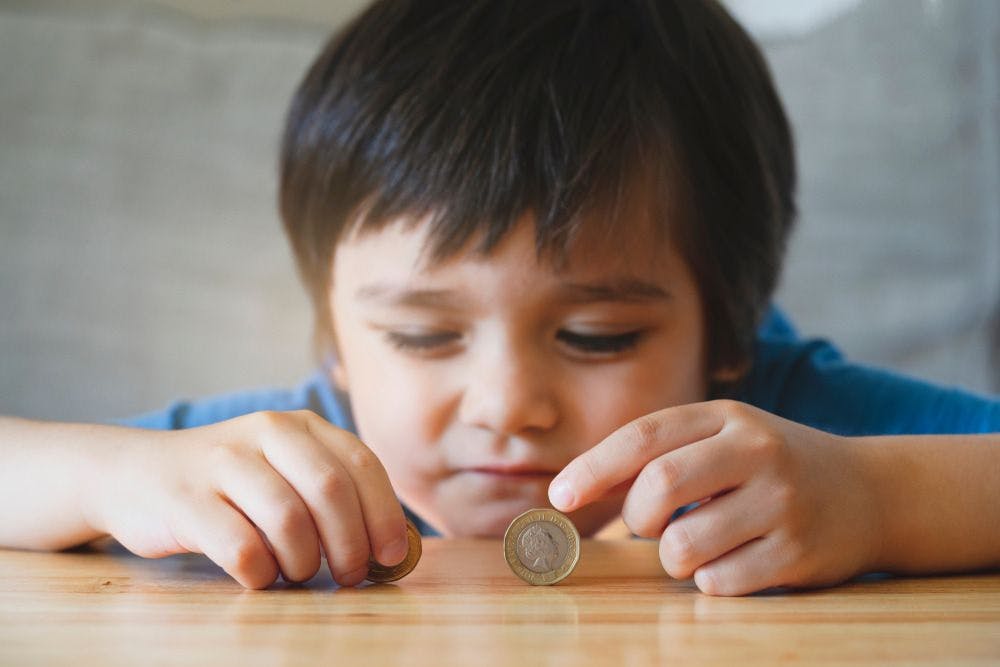
As a new study finds inequalities in financial capability across the UK’s young people, we’re exploring five tools for teaching kids about money
Money. Our lives revolve around it, how much we have, what we do with it, and what we do when we don’t have enough of it. And, yet, getting into the finer details of how it works, and how we can make it work for us, can be daunting.
Now, a new study, published in the British Journal of Education Studies, has uncovered a ‘sizeable’ gap in children’s financial understanding, depending on their socio-economic group. What researchers saw was that children from more disadvantaged backgrounds were less likely to report covering money topics at school. Additionally, they found that children from more disadvantaged backgrounds were less likely to have conversations about money, or to be ‘shown how money works’ by their caregivers.
The findings of the study have prompted researchers to call for greater emphasis on developing financial skills among children in primary schools. But, for now, what can you do to help support the children in your life? We’ve highlighted five tools for teaching kids about money.
Financial education from HSBC
For children aged three to seven, you can head to HSBC to download free worksheets.
Designed to get children familiar with how money works, and the words that we might use when we’re talking about using money to buy things. The worksheets cover four categories: ‘Managing my money’, ‘Learning about needs and wants’, ‘Value of money’, and ‘Planning for the future’. And children can learn about everything from figuring out how much money they have, to learning about saving for the future.
Head to hsbc.co.uk
Money Heroes
A one-stop shop for everything that you need to teach children from ages three all the way through to 11 about money, the Money Heroes site offers free resources for parents and children. Filtering the tools by age groups, you have access to a huge range of important topics around money, including dealing with emotions around money, and guides to becoming a critical consumer.
MicheLee Puppets
Who doesn’t love getting an education from singing puppets? MicheLee Puppets have a selection of videos on money, including impulse buying and budgeting, and each short video works through both the emotions and the practical steps of dealing with money. Do note, these puppets deal in dollars, so be on hand to answer any questions your child may have about currency.
Fun Kids, Money Matters
A podcast from children’s radio station Fun Kids, Money Matters provides short episodes which work through the essentials of financial literacy, including covering digital money – an essential skill in our modern world. These bite-sized guides are great for starting a conversation in an easily digestible and engaging format, and you can find more content around each episode on the Fun Kids website.
Money Mum
This is one for the parents out there. One of the best ways that you can teach children about money is by role-modelling good habits for them. Gemma Bird, AKA Money Mum shares all sorts of practical money tips that you can apply to your household management immediately. From savings to make on buying snacks for kids to cost-cutting around the home, Gemma has it covered.

